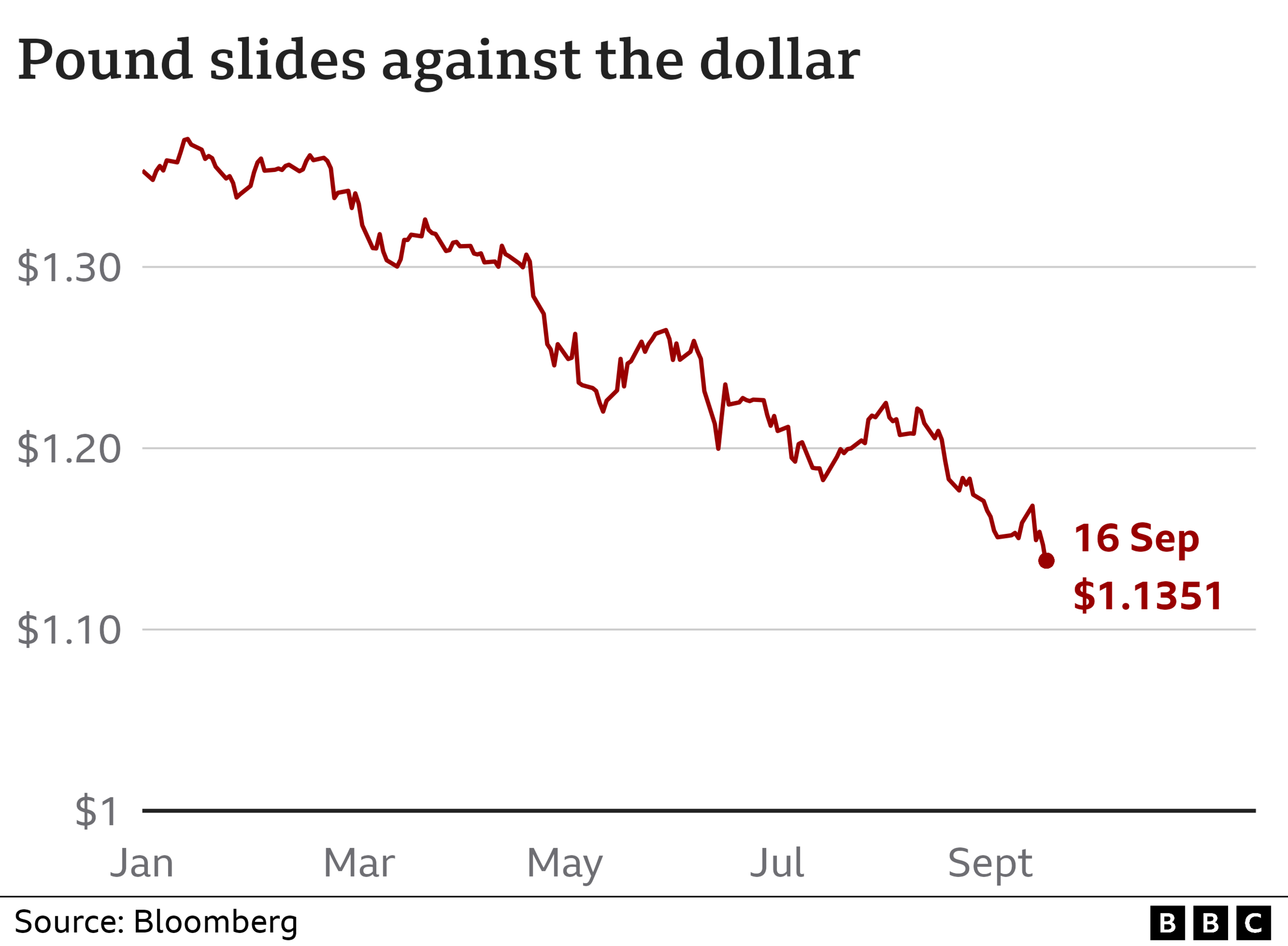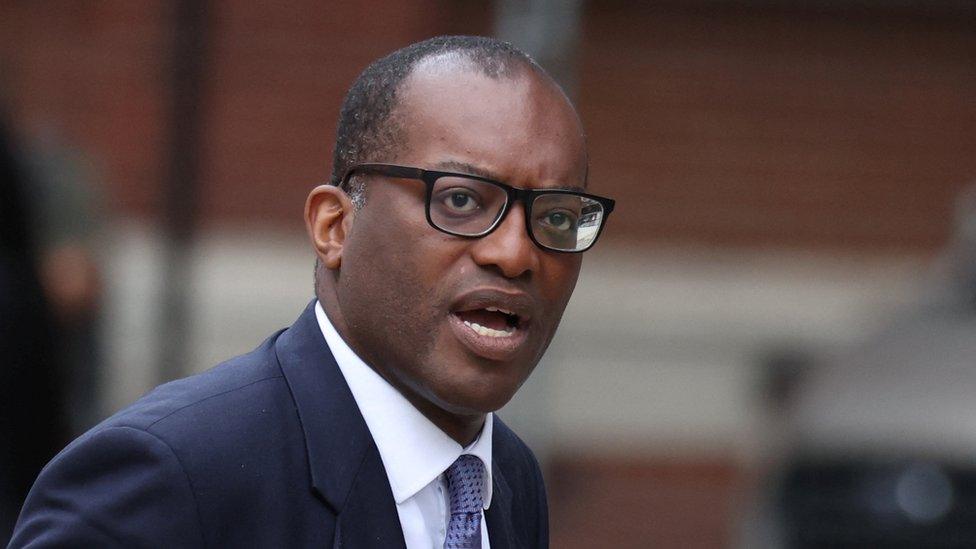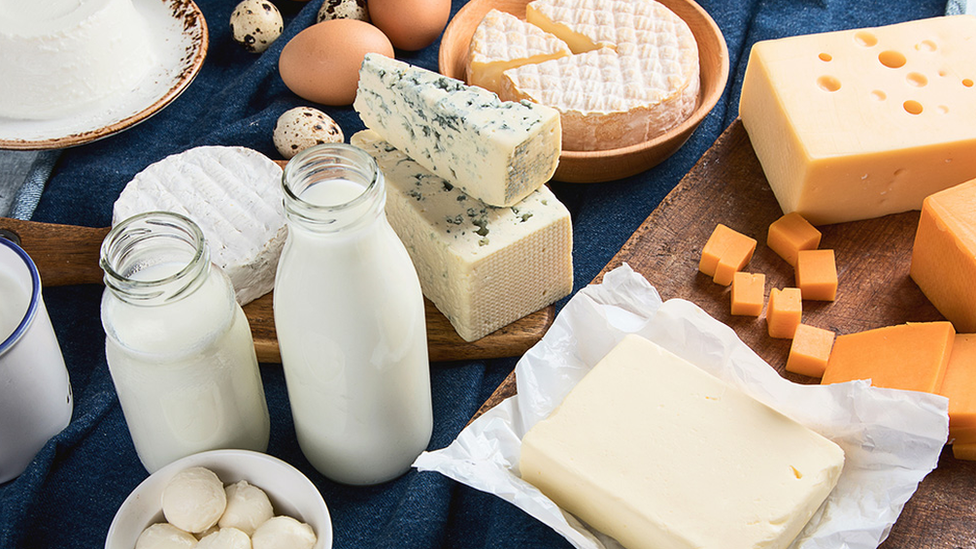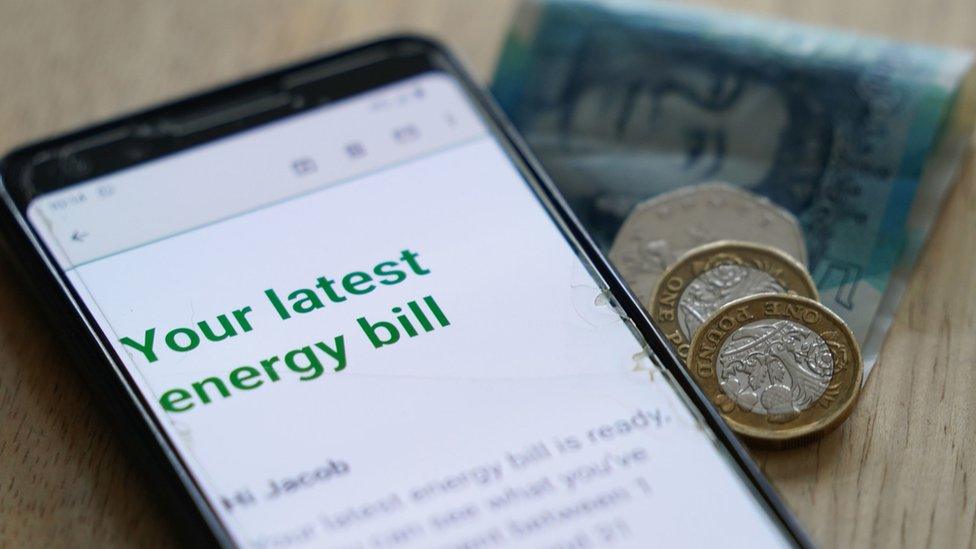Pound hits new 37-year low as retail sales slide
- Published

The pound has fallen to a new 37-year low against the US dollar after figures showed UK retail sales fell sharply in August as the rise in the cost of living continued to hit households.
The larger-than-expected drop in sales volumes of 1.6% prompted fresh concerns over the state of the economy.
Sales across all retail sectors fell in August as households cut back in the face of rising prices.
One analyst suggested the figures showed the UK is already in recession.
Sterling fell more than 1% against the dollar to $1.1351 at one point, its lowest since 1985, following the release of the retail sales figures. The pound recovered later to climb above $1.14.
The pound has been falling against the US currency for most of the year, partly due to the strength of the dollar. A weak pound means Brits travelling overseas will find their spending money will not stretch as far.
This comes at a time when UK inflation, which is the rate at which prices rise, is running at a near 40-year high, despite slipping to 9.9% from July's 10.1%.
The Bank of England has predicted the UK will fall into recession towards the end of this year and it is expected to keep increasing interest rates in a bid to curb inflation.
Olivia Cross, assistant economist at Capital Economics, said August's retail sales figures backed up the consultancy's view that the UK economy is "already in recession".
A recession is defined by the economy getting smaller for two consecutive three-month periods.
"Retail sales will probably continue to struggle as the cost of living crisis hits harder in the coming months," Ms Cross said.
"But nonetheless the Bank of England will still have to raise interest rates aggressively."

Higher prices, along with upcoming energy bill rises in October, have led households to tighten their belts when it comes to spending.
The government announced the Energy Price Guarantee last week to help people with energy bills. The support will see annual energy bill for a typical household capped at £2,500 for two years.
Typical energy bills were set to rise to £3,549 a year and even higher in 2023, before the government intervened.
Ms Cross, of Capital Economics, said that because of the intervention, any recession would be "smaller and shorter" than it had expected previously.
Martyn Beck, chief economic adviser to the EY Item Club, said the government support "should ease both the income squeeze and lift consumers' sentiment, suggesting the outlook for retailers isn't as gloomy as could have been the case".
"However, real household incomes are still on course for a significant fall over the next 12 months or so," he added.
The government is expected to set out the estimated cost of plans to cap energy prices in a "mini-Budget" next Friday, as well as tax cuts pledged by Prime Minister Liz Truss in a bid to boost the economy.


Sterling's fall to a fresh 37-year low against the dollar today is not isolated. The pound also hit its weakest level against the euro for nearly a year and a half.
So while the big picture movement is strength in the US dollar, there continues to be specific additional pressure on the pound sterling in international markets.
This morning's trigger was far weaker than expected retail sales figures. But markets await next Friday and the extent of borrowing required for the government's energy plan and tax cuts.
The eurozone too is heading for recession, but there is little comfort in such company.
The risk is that a weaker currency, makes imports of essentials, from energy to food, more expensive, prolonging the period of high inflation. And if the UK's nearest trading partners are also in recession, exporters will not see significant benefit from a weaker pound.

The fall in retail sales continues the slide since the summer of 2021, when all Covid restrictions were removed, the Office for National Statistics (ONS) said, external. The drop seen in August was the largest month-on-month fall since December 2021.
Sales of food, online, non-food and fuel all fell in the month, the ONS said.
Supermarkets' sales volumes also fell by 0.9% in August, but alcohol and tobacco sales rose by 6.3%.
"Feedback from retailers suggests that consumers are cutting back on spending because of increased prices and affordability concerns," the ONS said.
Danni Hewson, AJ Bell financial analyst, said people were "clearly thinking hard about what they spend their money on".
"It's just not stretching as far as it used to, and essentials have to come first. But even essentials are costing more and with the spectre of unmanageable fuel bills looming large people did the only thing they could, cut back," she said.

Shoppers are shunning "big ticket" purchases, such as washing machines
According to the ONS, department stores saw a large drop in sales in August - 2.7% - while sales in clothing shops fell by 0.6%.
"Big ticket purchases are being put off and that's unlikely to change in the coming months," said AJ Bell's Ms Hewson.
On Thursday, John Lewis revealed that while its shopper numbers were higher than last year, customers were spending less and avoiding buying as many "big ticket" items.
The department store and its supermarket chain Waitrose reported a loss of £99m for the first half of its trading year. Waitrose said it sales were down 5% on last year, with basket sizes shrinking by "nearly a fifth".
Food prices have been increasing around the world following Russia's invasion of Ukraine, which has been one of the main factors pushing up prices at supermarket tills.
Meanwhile, the proportion of retail sales online fell to 25.7% in August from 26.3% in July, but the figure remains significantly above pre-pandemic levels.
- Published15 September 2022

- Published14 September 2022

- Published22 September 2022
